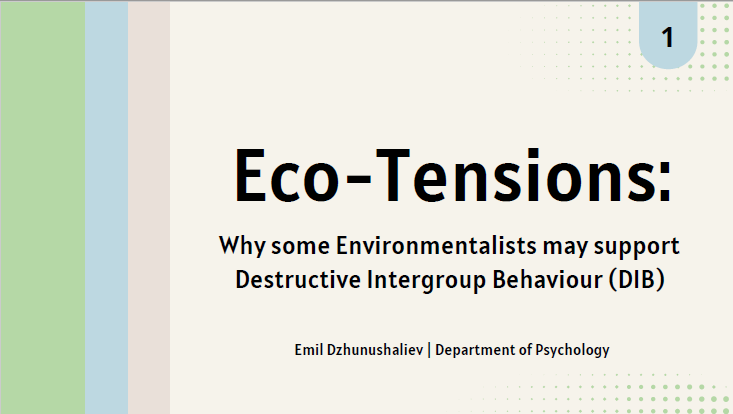Eco-Tensions: Why some Environmentalists may support Destructive Intergroup Behaviour
Main Article Content
Abstract
Environmental protests have become commonplace as a reaction to climate change. While mostly peaceful, it is not uncommon for Destructive Intergroup Behaviour (DIB) to occur, which is collective action taken with the intent of harming members of another group. As climate change becomes more severe, the frequency of DIB is expected to rise. Past work in social psychology has mainly focused on motivations of those who engage in DIB, with little research on why some group members might support/endorse DIB without being willing/able to actively engage in it themselves. As group support often encourages actors of DIB, it is imperative to study this, and findings would serve to aid understanding of DIB, which might have implications on how to best manage such conflicts. This study presented self-identified environmentalists with a survey measuring five psychological processes that are hypothesized to influence support for DIB: the individual’s level of identification with environmental activists (ingroup identification); emotions felt on behalf of the group directed at outgroup members, including anger and contempt (outgroup-directed emotions); emotions felt on behalf of the group directed at ingroup members, including guilt and shame (ingroup-directed emotions); the degree to which they believe environmental activists can solve their shared problems (collective efficacy); and the degree to which they believe they can effectively punish outgroup members (punishment efficacy). A mediational model will be used to test the unique importance of each of these in predicting participants’ willingness to endorse DIB done by environmentalists against a company responsible for serious environmental damage.
Article Details

This work is licensed under a Creative Commons Attribution-NonCommercial-NoDerivatives 4.0 International License.

